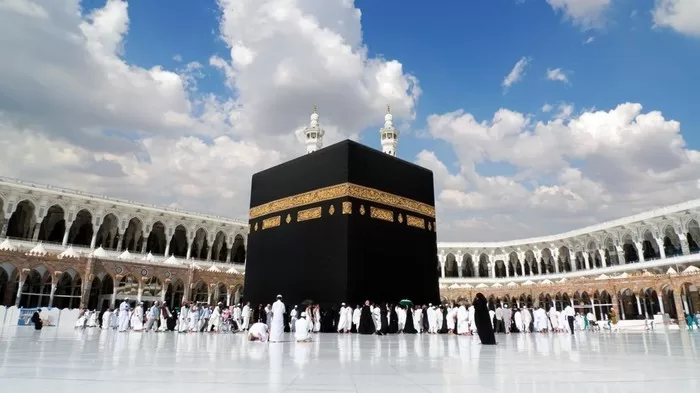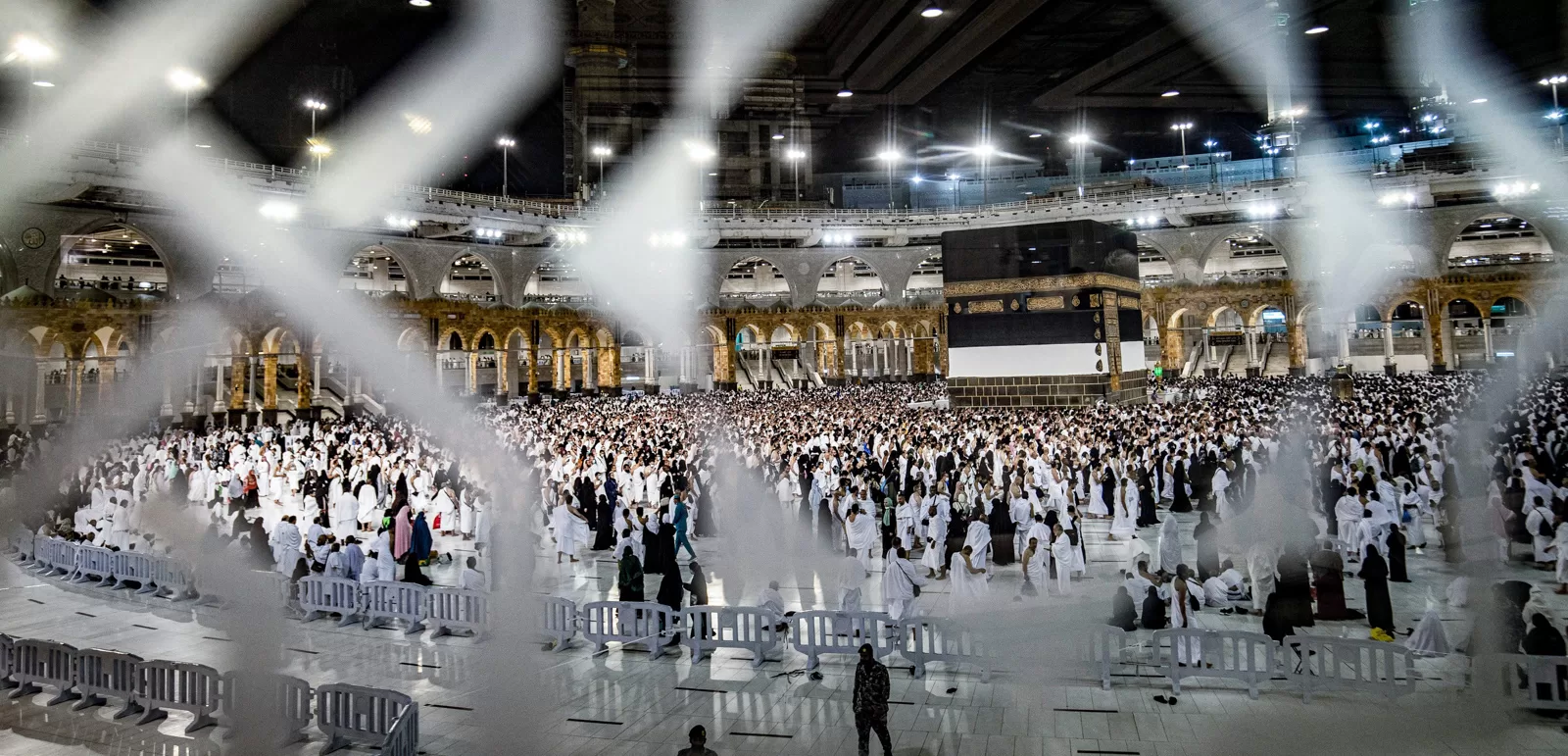Assuming Iharaam (IHraam is the state entered into at the Meeqat in which certain acts and types of clothing are forbidden).
1. It is mustaHabb for anyone going for Hajj or ‘Umrah to take a ghusl (bath) for iHraam – even if a woman is in her period or in after-birth confinement.
2. Then the men may wear whatever clothes he wishes that are not made in the shape of the body – and these clothes are called by the fuqahaa (religious scholars) “ghair al mukheet (unstitched)”. So he wears a ridaa (upper garment) and izaar (lower garment) or whatever, and sandals or any footwear that does not cover the ankle-bone.
3. He does not wear a hat or an ‘imaamah (turban) or anything like that which fits onto and covers the head – this referring only to men. As for the women – she does not remove anything of the clothes that are prescribed for her in the Shari’ah, except that she should not tie on the niqaab(8) (face-veil) or the burqa’ or the lithaam (lower face cover, up to the eyes) or handkerchief and she should not wear gloves(9). And the Prophet ![]() said : “The muHrim should not wear the shirt, or the ‘imaamah, or the hooded cloak, or trousers, or garment touched by wars (dyes with saffron) or saffron; or leather socks – unless he cannot find sandals) then in that case he may wear leather socks),(10)” and the Prophet said: “The woman muHrim should not affix a face veil and should not wear gloves(11). And it is permissible to for the women to cover her face – even if it touches her face according to the correct opinion – however, she should not tie it on, as Ibn Taymiyyah says.
said : “The muHrim should not wear the shirt, or the ‘imaamah, or the hooded cloak, or trousers, or garment touched by wars (dyes with saffron) or saffron; or leather socks – unless he cannot find sandals) then in that case he may wear leather socks),(10)” and the Prophet said: “The woman muHrim should not affix a face veil and should not wear gloves(11). And it is permissible to for the women to cover her face – even if it touches her face according to the correct opinion – however, she should not tie it on, as Ibn Taymiyyah says.
4. He may put on the clothing of iHraam before the meeqat even in his own house as the Prophet and his Companions did. And this makes it easier for those making Hajj by aeroplane for whom it is not possible to put on iHramm at the meeqat – so it is permissible for them to embark on the plane in iHraam, but they do not make the intention of iHramm until very shortly before the meeqat – in order that they do not go past the meeqat without iHraam.
5. He may use body_oil and perfume himself with any perfume he please which was has odor but not color, however, women use that which has color not but no odor – and all this to be before he makes intention of iHraam at the meeqat – after that is Haraam.
Ihraam and Niyya (intention)
6. So when he comes t the meeqat it becomes waajib (obligatory) for him to assume iHraam – and the mere wish and intention to perform Hajj is not sufficient as that has been with him since leaving his own land – rather he must perform by word and action what will cause him to be muhrim. So when he recites `talbiyyah’ intending to enter into iHraam then his iHraam is concluded – as agreed upon by the scholars.
7. And he does not say anything more than the talbiyyah such as their saying: “O Allah, I intend to make Hajj or `Umrah so make it easy for me and accept it from me…” as none of this is reported from the Prophet – just like speaking with the intention for wudoo and salaat and Fasting – all of this being from the newly invented matters and is well-known the Prophet said: “…for every newly invented matter is an innovation, and every innovation is a going astray and every going astray is in Hell_Fire.” [Tirmidhee – saHeeh] Imanway.com


